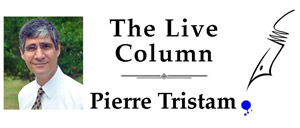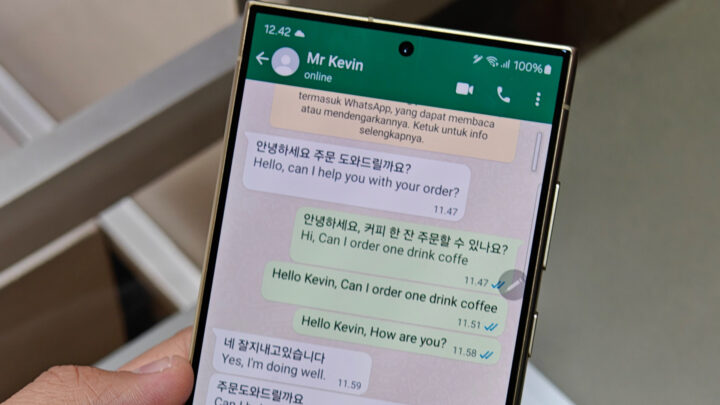Making Money panelists Shah Gilani and Scott Martin reveal how Apple can craft excitement in the marketplace and break down the price of oil.
Vasco Electronics previewed its next-generation live voice translation device that is powered by artificial intelligence (AI) and can provide live translations of nearly 50 languages to your ear.
The company, headquartered in Poland, previewed the device at CES 2024 in Las Vegas last week. The Vasco Translator E1 uses earpieces that are connected to a phone app and can translate 49 languages in real-time with an audio translation that someone can hear through the earpiece. The translation also appears as text in the app for convenience.
The Translator E1 can accommodate conversations with up to 10 people when a mobile app is used. The tool allows each user to speak their own language and hear the response in that language. The earbuds fit over the ear, rather than in the ear, for hygienic purposes, and it can be used with two earpieces or one earpiece and a phone.
Tomasz Stomski, Vasco’s chief product officer, told FOX Business at CES that the E1 was designed to be more user-friendly for longer conversations than its Translator V4, which is more useful for a "fast conversation, like if you’re traveling or need to get something done quickly."
WHAT IS ARTIFICIAL INTELLIGENCE (AI)?

The Vasco E1 Translator earbud. (Courtesy of Vasco Electronics)
"We decided to go for something that is more natural so you don’t have to hold the device in your hand, you can put it on the table and put on your earbuds and set it to touchless translation mode and have a conversation," Stomski said.
Vasco currently sells the Translator V4, which is a handheld device that resembles a smartphone and provides live translation of conversations and can also be used to translate text from images taken by the user. The V4 can provide speech translation in 76 languages, in addition to photo translations in 108 languages and text translation in 90 languages – though it is most useful for translating shorter conversations.
Stomski said Vasco wants the translation tools to meet the needs of customers who travel regularly, as well as those who are ex-pats, working in international teams or are in families that have language barriers due to relatives being from different countries.
SAMSUNG UNVEILING ‘NEW ERA OF MOBILE AI,’ S24 LINEUP DURING GALAXY UNPACKED EVENT

The Vasco E1 Translator with earbuds in the case. (Courtesy of Vasco Electronics / Fox News)
The Vasco Translator E1 is expected to be available in the U.S. in the second quarter of this year, while it will be available this March in Europe. It’s also compatible with the Translator V4 for users who wish to use both devices.
Stomski explained that AI is used to help identify human voices to filter out background noise that could otherwise interfere with the live translation or the transcript generated by the devices.
"All of the translations there are connections with AI of course, but starting with the earbud – here we’ve got a model that helps us to recognize the human voice because we’re checking what is going into the microphone and we’re checking with the AI model if this is a human voice or this is like a car or a dog," he said.

The Vasco V4 Translator. (Courtesy of Vasco Electronics / Fox News)
GET FOX BUSINESS ON THE GO BY CLICKING HERE
Stomski added that the device uses several models from different providers, in addition to in-house solutions to cross-check speech translations as well as the image-to-text translations that Vasco’s tools can provide.
"We are constantly checking the quality of the translation for every pair because we cannot do it in a common language," he explained. Those translations are sent to Vasco’s cloud, which helps semi-automatically test the roughly 6,000 pairs of languages covered by the devices before those results are checked by humans.











